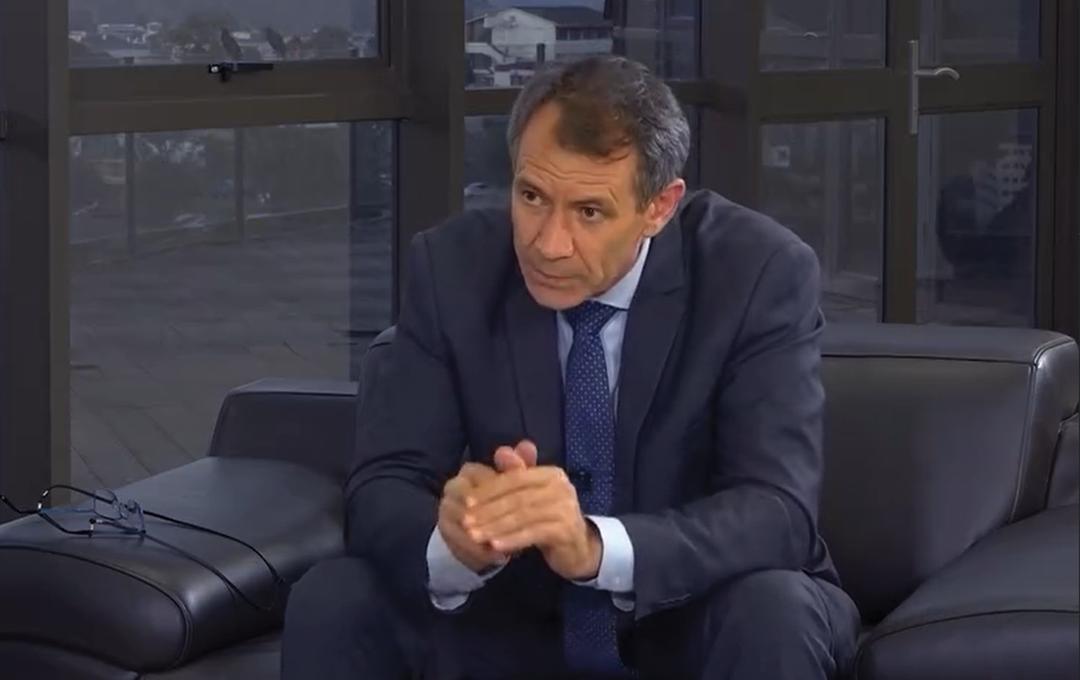Africa-Press – Eswatini. Minister of Finance Neal Rijkenberg says Emaswati are now 87 per cent financially included which is an increase from 2011 Finscope Consumer findings, which stood at 44 per cent.
The minister made these remarks during the 29th Financial Inclusion Strategy Peer Learning Services (DFS), 24th Financial Inclusion Strategy Peer Learning Group (FISPLG) and the 19th Global Standards Proportionality (GSP) working group meetings held at the Happy Valley Hotel and Casino in Ezulwini yesterday.
The gathering which saw delegates converge from other countries such as Chile was focused on advancing financial inclusion in the country and across the globe.
Contributing
He said the country recognised the significant role played by the financial services sector in contributing to the overall growth of the economy.
In light of this, he said one of the main objectives of government was to improve the reach and depth of financial services delivery countrywide, the lack of comprehensive information about the level of financial inclusion and the factors which inhibit the usage of financial services.
Rijkenberg shared that his ministry intentionally collaborated with the International Fund for Agricultural Development (IFAD) to pilot projects aimed at promoting access to finance. He made an example of the Rural Finance and Enterprise Development Project in 2011.
From the lessons learnt from this project, he disclosed that an agreement was reached with IFAD to design the Financial Inclusion, and Cluster Development Project (FINCLUDE) so as to implement access to finance and financial inclusion initiatives for smallholder farmers, and micro and small medium enterprises.
“To ensure its commitment to the financial inclusion agenda, government launched for the first time a national financial inclusion strategy (NFIS)) in 2017.
It also established a financial inclusion agency, the centre for financial inclusion (CFI) which had as its primary responsibility the mandate to drive the financial inclusion agenda and to provide a road map for advancing financial inclusion in Eswatini and to ensure that the vision of government as enshrined in the strategy is realised. The strategy outlined specific targets, key actions and key responsibilities for the various institutions identified as key for the implementation of the strategy,” he stated.
With this, Rijkenberg highlighted that the adoption of digital financial services had been instrumental in expanding financial inclusion in the country as such as mobile money services. He maintained that these digital payment platforms had facilitated greater access to banking services, especially in remote areas.
Survey
“As a result, financial inclusion from the Finscope survey 2018, indicates we are now at 87 per cent financial inclusion. This is a commendable achievement given the first Finscope Consumer 2011 indicated a 44 per cent financial inclusion rate,” he stated.
He further added that the collaboration between government, financial institutions, Fintech companies, civil society and non –governmental organisations have been vital in driving financial inclusion in the country.
On that note Eliki Boletawa, Director of Policy Programmes and Implementation also said AFI members understood the critical role of the working groups which helped success stories such as one of the women who was described as Thandiwe, whose business transformed from traditional ways of handling money to making payments through secure mobile banking and innovative regulations that embrace digital solutions.
He said the FISPLG provided a backbone for coordinated action, while the DFSWG and the GSPWG helped to ensure digital solutions expand access responsibly and build trust. He added that the AFI network had achieved remarkable progress as he announced that the 2024 Global Policy Forum which was hosted in partnership with the Banco Central de reserve de El Salvador would be exploring the theme ‘Innovation for an Inclusive World’.
He also said, “Together, we can refine these groups into even sharper instruments for change, accelerating financial inclusion and transforming countless lives across the world.
Forge partnerships that can multiply our collective efforts and let’s leave Eswatini with a clear roadmap designed to accelerate financial inclusion across the globe.”
For More News And Analysis About Eswatini Follow Africa-Press







